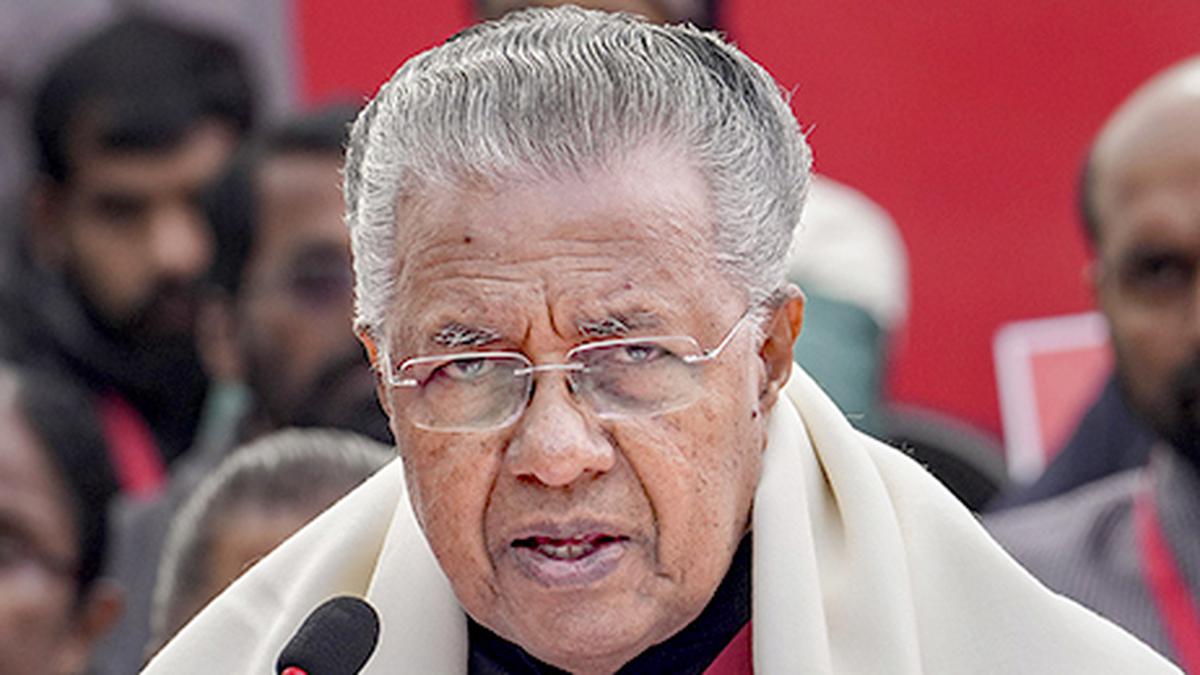
Pinarayi Vijayan counters PM Modi’s portrayal of Kerala as a State in decline
The Hindu
Kerala Chief Minister Pinarayi Vijayan refutes Prime minister narendra Modi's claims, highlighting Kerala's achievements and criticising BJP's policies.
Kerala Chief Minister Pinarayi Vijayan on April 16 (Tuesday) sought to refute Prime Minister Narendra Modi’s alleged portrayal of Kerala as a State in economic and social decline.
Speaking to reporters in Thrissur, Mr. Vijayan attempted to offer a counter-narrative to Mr. Modi’s main talking points during the latter’s whirlwind electioneering tour in Kerala on April 15.
Mr. Vijayan said NITI Aayog findings belied Mr. Modi’s grim picture of the State. “Kerala has the country’s highest physical quality of life index (PQLI) and the lowest poverty. It topped the country’s sustainable development index and several other parameters, including housing, public health, climate change mitigation and daily earnings. BJP-ruled States, including Uttar Pradesh, compared poorly”, he said.
Mr. Vijayan also refuted Mr. Modi’s claim that Kerala had suffered a legal setback in the Supreme Court when the former challenged the Centre’s decision to include off-Budget borrowings by special purpose vehicles in the State’s debt calculation.
Mr. Vijayan said the Centre applied “a different yardstick” to itself. For one, it did not include the borrowings of the National Highways Authority of India (NHAI) and National Thermal Power Corporation (NTPC), both special purpose vehicles, in the Centre’s debt limit, he said.
Mr. Vijayan said Kerala had moved the Supreme Court against the Centre’s decision to haul down the State’s borrowing limit by premising the decision on an erroneous interpretation of Article 293(3) of the Indian Constitution.
He said the Supreme Court had handed Kerala a legal victory by referring the question to a five-member Constitutional bench. Moreover, other non-BJP provincial governments had challenged the Centre’s “trespasses” on fiscal federalism, prompting the apex court court to wonder whether the Union government was “competing” with States.













